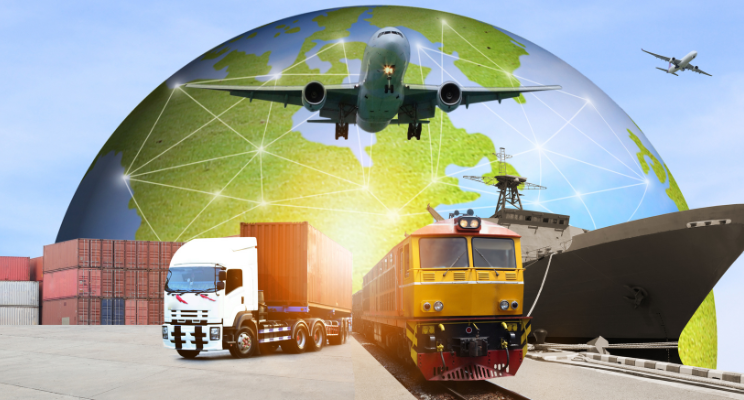What is logistics?
Logistics is the process of planning, implementing, and controlling the movement of goods and services from the point of origin to the point of consumption. It involves the management of the flow of goods, information, and resources between the point of origin and the point of consumption to meet the requirements of customers or corporations. Logistics includes various activities, such as transportation, warehousing, inventory management, packaging, and security, among others. The goal of logistics is to ensure that the right product is delivered to the right place, at the right time, and at the right cost, while also managing the risks associated with the movement of goods and services. Effective logistics management can help businesses to improve efficiency, reduce costs, and increase customer satisfaction.

CoreIMS logistics management software provides businesses with several benefits, including improved order processing efficiency, greater visibility into the supply chain, healthy professional relationships with all involved parties, and reduced operational costs. By implementing effective logistics management strategies, businesses can improve their overall competitiveness and achieve long-term success.
Types of Logistics:
There are different types of logistics, each with its own unique focus and purpose. Here are some most important types of logistics:
- Inbound Logistics: This refers to the transportation, storage, and delivery of goods from suppliers to the warehouse or manufacturing facility.
- Outbound Logistics: This refers to the transportation, storage, and delivery of finished products from the manufacturing facility to the end customer.
- Reverse Logistics: This refers to the management of the return of products from the end customer to the manufacturer or supplier.
- International Logistics: This refers to the transportation, storage, and delivery of goods across international borders and includes customs clearance, documentation, and compliance with international regulations.
- Green Logistics: This refers to the integration of environmental considerations into logistics operations, such as reducing carbon emissions, minimizing waste, and using sustainable transportation methods.
- E-commerce Logistics: This refers to the logistics operations that support online sales, including order fulfillment, inventory management, and last-mile delivery.
- 3PL (Third-Party Logistics): Refers to outsourcing logistics operations to a third-party provider. A 3PL logistics provider offers a range of services that include transportation, warehousing, inventory management, order fulfillment, customs clearance, and other value-added services. The primary advantage of using a 3PL provider is that it allows businesses to focus on their core competencies while leaving the logistics operations to the experts. This can lead to improved efficiency, reduced costs, and increased customer satisfaction. 3PL providers have the expertise, technology, and resources to offer customized solutions that meet the unique needs of their clients. They can also provide scalability and flexibility in logistics operations, allowing businesses to adapt quickly to changing market conditions. CoreIMS warehouse management software (WMS) exclusively for third-party logistics companies helping them run more efficiently, grow their business and satisfy their customers.

Top 10 benefits of logistics:
Logistics is an essential activity in ensuring that goods and services reach customers efficiently and effectively. Here are some of the benefits of logistics:
- Improved Efficiency: Logistics helps businesses to streamline their operations by optimizing transportation routes, reducing inventory costs, and improving supply chain visibility, leading to improved efficiency and reduced costs.
- Increased Customer Satisfaction: Logistics helps businesses to deliver products to customers faster, more reliably, and at a lower cost, resulting in increased customer satisfaction.
- Competitive Advantage: Logistics can provide businesses with a competitive advantage by providing faster and more efficient delivery, better inventory management, and improved supply chain visibility.
- Risk Management: Logistics helps businesses to manage supply chain risks by providing better inventory control, improved visibility into the supply chain, and more effective transportation planning.
- Scalability: Logistics can help businesses to scale their operations by providing access to additional transportation and warehousing resources, allowing them to expand their reach and increase their capacity.
- Flexibility: Logistics can help businesses to adapt quickly to changing market conditions by providing the ability to adjust transportation routes, inventory levels, and other logistics.
- Enhance Supply Chain Management: Logistics helps to manage inventory levels, monitor production processes, and streamline shipping processes from suppliers to customers, leading to an effective supply chain management.
- Enables Global Access: Logistics enables companies to expand their business globally by providing timely and efficient transportation of goods to different parts of the world.
- Ensure Safety and Quality: Logistics helps to ensure that products are transported safely and securely, which minimizes the chances of damage or loss. Also, it helps to maintain the quality of products throughout the supply chain process.
- Facilitate Real-Time Tracking: Logistics software can provide real-time tracking of shipments, which helps to identify bottlenecks and streamline delivery processes in real-time.
